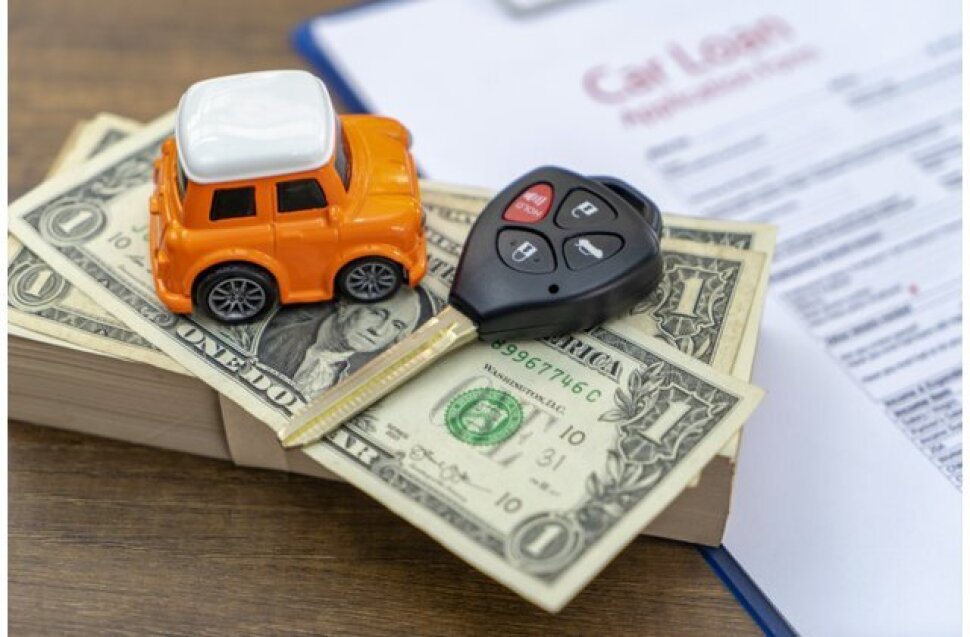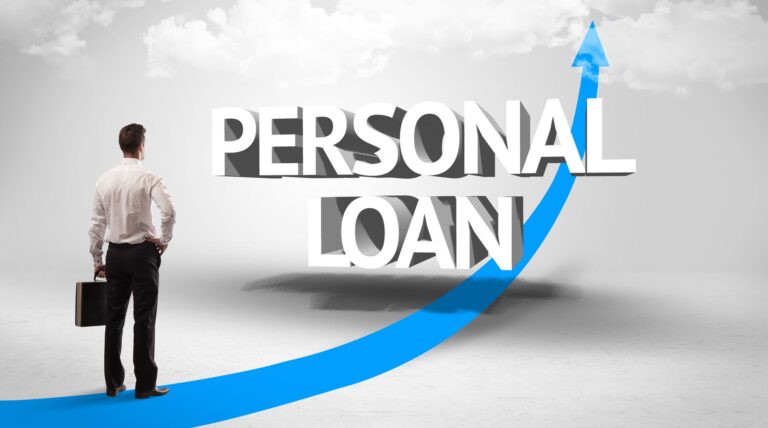Are You Getting The Best Deal On Your Car Loan?
Purchasing a car is an exciting milestone in many people’s lives, but it often comes with the need to take out a car loan. Whether you’re buying a brand-new car or a used one, a car loan can be an essential financial tool to make your dream vehicle a reality. However, just because you are financing a car doesn’t mean you’re getting the best deal. Many car buyers end up paying more than they should due to poor loan terms, high-interest rates, or hidden fees.
In this article, we will break down the essential elements of car loans, what to look for when evaluating loan options, and how to ensure that you’re getting the best possible deal. We’ll also address some frequently asked questions (FAQs) and provide you with actionable insights to make informed decisions about your car financing.
Key Takeaways
- Interest Rates Matter: Shop around for the lowest interest rate to save money over the life of the loan.
- Shorter Terms Save You Money: Opting for a shorter loan term can reduce the amount of interest you pay.
- Down Payments Make a Difference: A larger down payment reduces your loan amount and helps you secure better terms.
- Read the Fine Print: Be aware of fees, penalties, and hidden costs before signing any loan agreement.
- Compare Lenders: Look for the best deal from various lenders, including banks, credit unions, and online lenders.
- Credit Score Is Key: A higher credit score will help you secure better loan terms and lower interest rates.
Understanding Car Loans

Before diving into how to find the best deal, it’s important to understand what a car loan is and how it works.
What is a Car Loan?
A car loan is a type of secured loan that allows a borrower to purchase a vehicle without paying the full price upfront. Instead, the borrower agrees to repay the loan over a fixed term (usually 24 to 72 months), with interest. The vehicle itself serves as collateral, meaning that the lender can repossess the car if the borrower fails to make payments.
Car loans come with varying interest rates, repayment terms, and other factors that can influence the overall cost of the loan. When looking for a loan, you need to consider all these factors to ensure you’re getting the best deal possible.
Key Factors that Impact Your Car Loan
| Factor | Description | Impact on Loan |
|---|---|---|
| Interest Rates | The percentage charged by the lender for borrowing money. | Higher interest rates increase the total cost of the loan. |
| Loan Term | The length of time (in months) you have to repay the loan (e.g., 36, 48, 60 months). | A longer term lowers monthly payments but increases total interest paid. |
| Down Payment | The initial amount paid upfront to reduce the loan amount. | A larger down payment reduces the loan principal, leading to lower monthly payments and less interest. |
| Credit Score | A numerical representation of your creditworthiness based on your financial history. | A higher credit score typically results in lower interest rates and better loan terms. |
| Fees & Additional Costs | Additional charges such as loan origination fees, documentation fees, or early repayment penalties. | Fees increase the total cost of the loan beyond the principal and interest. |
| Vehicle Type | The type of car you are buying (new or used). | New cars usually have lower interest rates than used cars, and may be eligible for manufacturer promotions. |
| Loan Amount | The total amount borrowed after the down payment. | A higher loan amount leads to higher monthly payments and more interest paid over time. |
| Lender Type | The financial institution offering the loan (bank, credit union, online lender, dealership). | Different lenders may offer varying rates and terms, with some lenders offering more flexibility than others. |
Several factors influence your car loan terms and, ultimately, how much you’ll end up paying for your car over the long term. These include:
1. Interest Rates
Interest rates are one of the most significant factors affecting the total cost of your loan. The lower the interest rate, the less you will pay in interest over time. Rates typically depend on factors such as your credit score, the length of the loan, and the type of car you’re buying.
2. Loan Term
The loan term refers to how long you’ll take to repay the loan. A longer loan term means lower monthly payments, but you’ll end up paying more in interest over the life of the loan. On the other hand, a shorter loan term will result in higher monthly payments but will save you money in interest.
3. Down Payment
The down payment is the amount of money you pay upfront when purchasing the vehicle. A larger down payment will reduce the overall loan amount and can help you secure a better interest rate. If you’re able to make a 20% down payment or more, you could significantly reduce the interest you’ll pay over the life of the loan.
4. Fees and Additional Costs
Aside from the interest rate, many car loans come with additional fees, such as loan origination fees, documentation fees, and early repayment penalties. Make sure to ask about all potential fees and add-ons before signing any agreements.
5. Your Credit Score
Your credit score is a critical factor that lenders use to determine your loan eligibility and interest rate. If you have a high credit score, you’ll likely qualify for lower interest rates and better loan terms. However, if your credit score is low, you may face higher interest rates or difficulty getting approved for a loan.
How to Get the Best Deal on Your Car Loan
Now that you understand the key factors involved in a car loan, let’s explore some practical tips to help you secure the best deal possible.
1. Check Your Credit Score
Before you even start shopping for a car loan, check your credit score. Your credit score plays a significant role in the interest rate you’ll be offered, so knowing where you stand can help you negotiate better terms. If your credit score is low, consider improving it before applying for a loan. Paying down credit card debt, correcting errors on your credit report, and making timely payments can all help boost your score.
2. Shop Around for the Best Interest Rates
Not all lenders offer the same interest rates, so it’s essential to shop around and compare offers. You can apply for car loans through a variety of sources, including:
- Banks: Traditional banks often offer competitive rates, especially if you already have a relationship with them.
- Credit Unions: Credit unions tend to offer lower interest rates and more flexible loan terms compared to banks.
- Online Lenders: Online lenders may also provide competitive rates and offer a more streamlined application process.
- Dealership Financing: Many car dealerships offer financing options, but these may come with higher interest rates, especially if you have poor credit.
By comparing different lenders, you can find the best interest rate and loan terms for your financial situation.
3. Consider a Shorter Loan Term
While longer loan terms may offer lower monthly payments, they often come with higher interest rates, meaning you’ll pay more for the car in the long run. If you can afford the higher monthly payments, consider opting for a shorter loan term (e.g., 36 or 48 months). You’ll pay less in interest over the life of the loan, and you’ll own the car outright sooner.
4. Negotiate the Price of the Car
The price of the car you’re purchasing also affects the loan amount and, subsequently, the overall cost of the loan. Don’t be afraid to negotiate the price of the car, whether you’re buying new or used. Research the market value of the vehicle, check for any promotions or rebates, and try to get the dealer to offer a lower price. Even a small reduction in the car’s price can save you money over the life of the loan.
5. Make a Larger Down Payment
A larger down payment can reduce the amount you need to borrow, lowering your monthly payments and potentially securing a better interest rate. Aim for at least a 20% down payment, if possible. Not only will this help reduce the loan amount, but it can also demonstrate to lenders that you’re financially responsible, making you a more attractive borrower.
6. Look for Loan Pre-Approval
Getting pre-approved for a car loan before you start shopping for a vehicle gives you a clear idea of your budget and helps you avoid overspending. It also allows you to focus on negotiating the best price for the car itself, rather than worrying about financing.
7. Beware of Extra Fees
As mentioned earlier, many car loans come with extra fees that can add up quickly. Be sure to read the fine print of any loan agreement and ask about any additional fees. If you’re considering dealership financing, be cautious of any add-ons or upsells that may increase the overall cost of your loan, such as extended warranties, insurance, or service packages.
Also Read :- What Is A Personal Loan And How Does It Work?
Conclusion
Securing the best deal on your car loan requires careful planning, research, and a clear understanding of the factors that influence your loan terms. By checking your credit score, shopping around for the best rates, and considering factors like loan term, down payment, and additional fees, you can save money and make your car financing work for you.
Remember, the loan terms you choose can have a significant impact on your financial well-being, both in the short and long term. Don’t rush the process—take your time to evaluate all your options, negotiate the best deal, and make sure you fully understand the terms before committing.
FAQs
1. How do I know if I’m getting the best car loan rate?
To determine if you’re getting the best rate, compare offers from multiple lenders, including banks, credit unions, and online lenders. Your credit score will also affect the rate you’re offered, so checking your score beforehand will give you a better idea of the rates you may qualify for.
2. Is it better to get a loan from a bank or a dealership?
While dealerships may offer convenience, their financing options often come with higher interest rates. Banks and credit unions generally offer lower rates and more favorable terms. It’s worth shopping around before making a decision.
3. What’s the difference between a fixed-rate and an adjustable-rate car loan?
A fixed-rate loan has a consistent interest rate throughout the life of the loan, meaning your monthly payments will remain the same. An adjustable-rate loan may have a lower initial rate, but the interest rate can change over time, potentially leading to higher payments later on.
4. Can I refinance my car loan if I get a better interest rate?
Yes, refinancing your car loan is a great way to lower your interest rate or adjust your loan term. Keep in mind that refinancing typically requires a credit check, and the new loan terms must make sense for your financial situation.
5. Should I pay off my car loan early?
Paying off your car loan early can save you money on interest. However, some loans may have prepayment penalties, so check your loan agreement before making extra payments.
6. What is the best loan term for a car loan?
The best loan term depends on your budget and financial situation. A shorter loan term (36 to 48 months) will save you money on interest but require higher monthly payments. A longer term (60 to 72 months) will lower your payments but cost you more in interest over time.
7. How much should I put down on a car loan?
Aim for at least a 20% down payment. A larger down payment reduces your loan amount and can help you secure a better interest rate.





